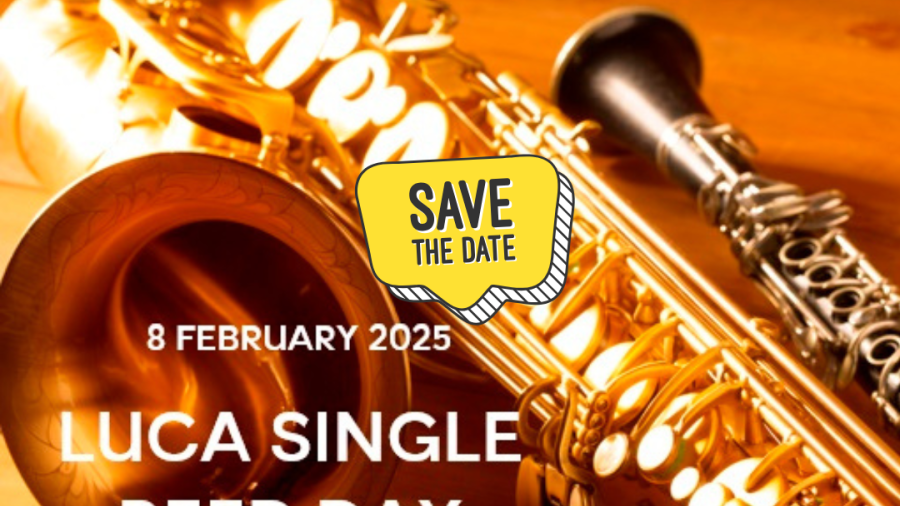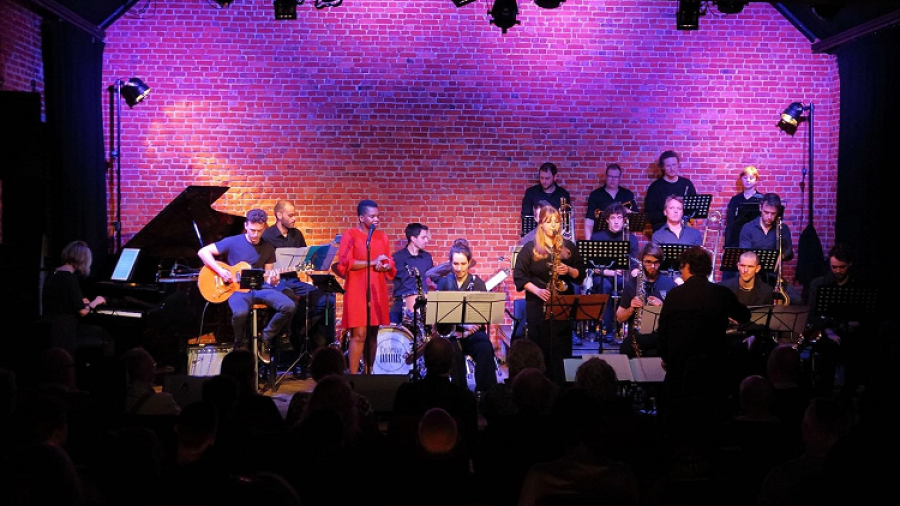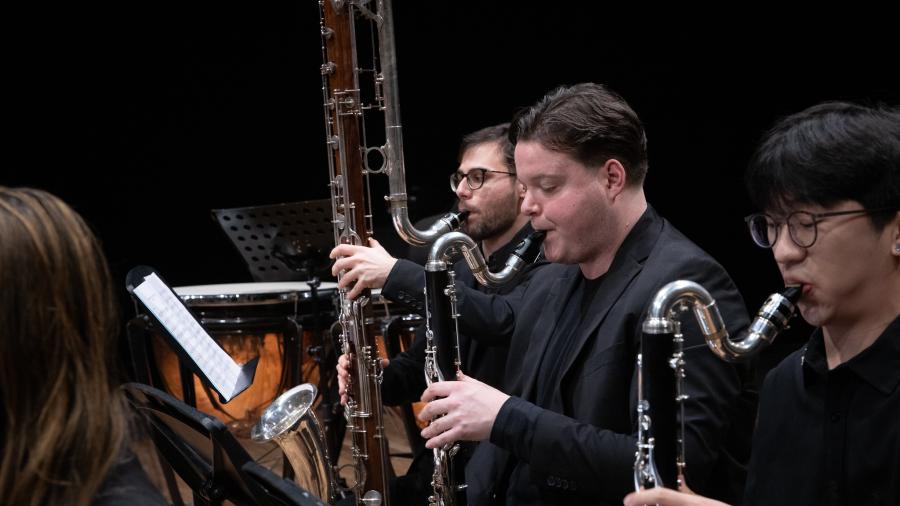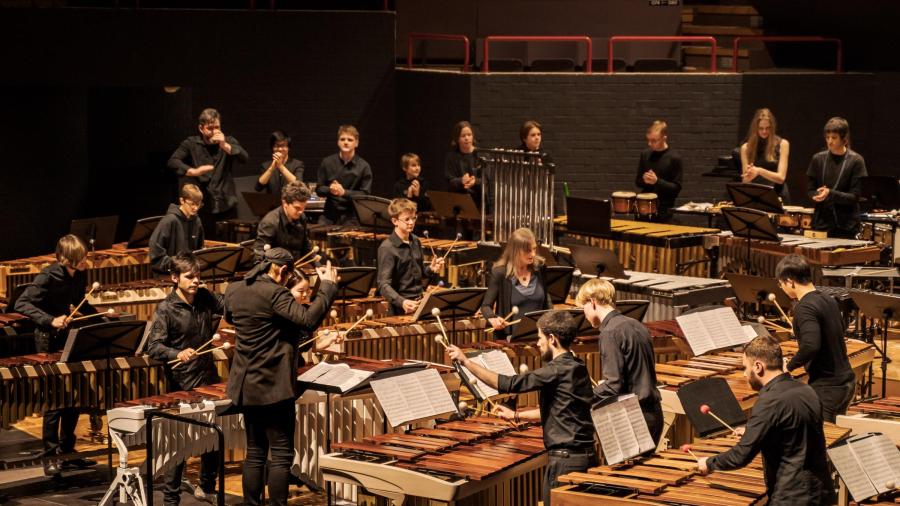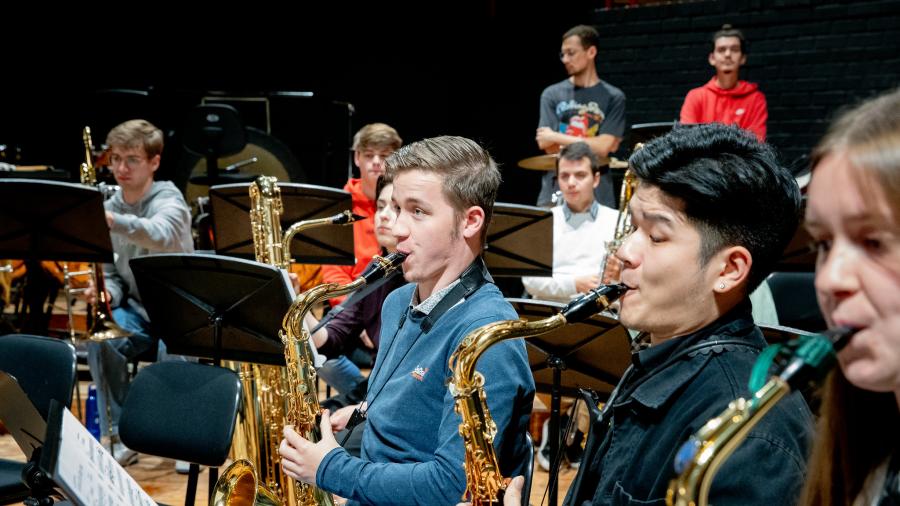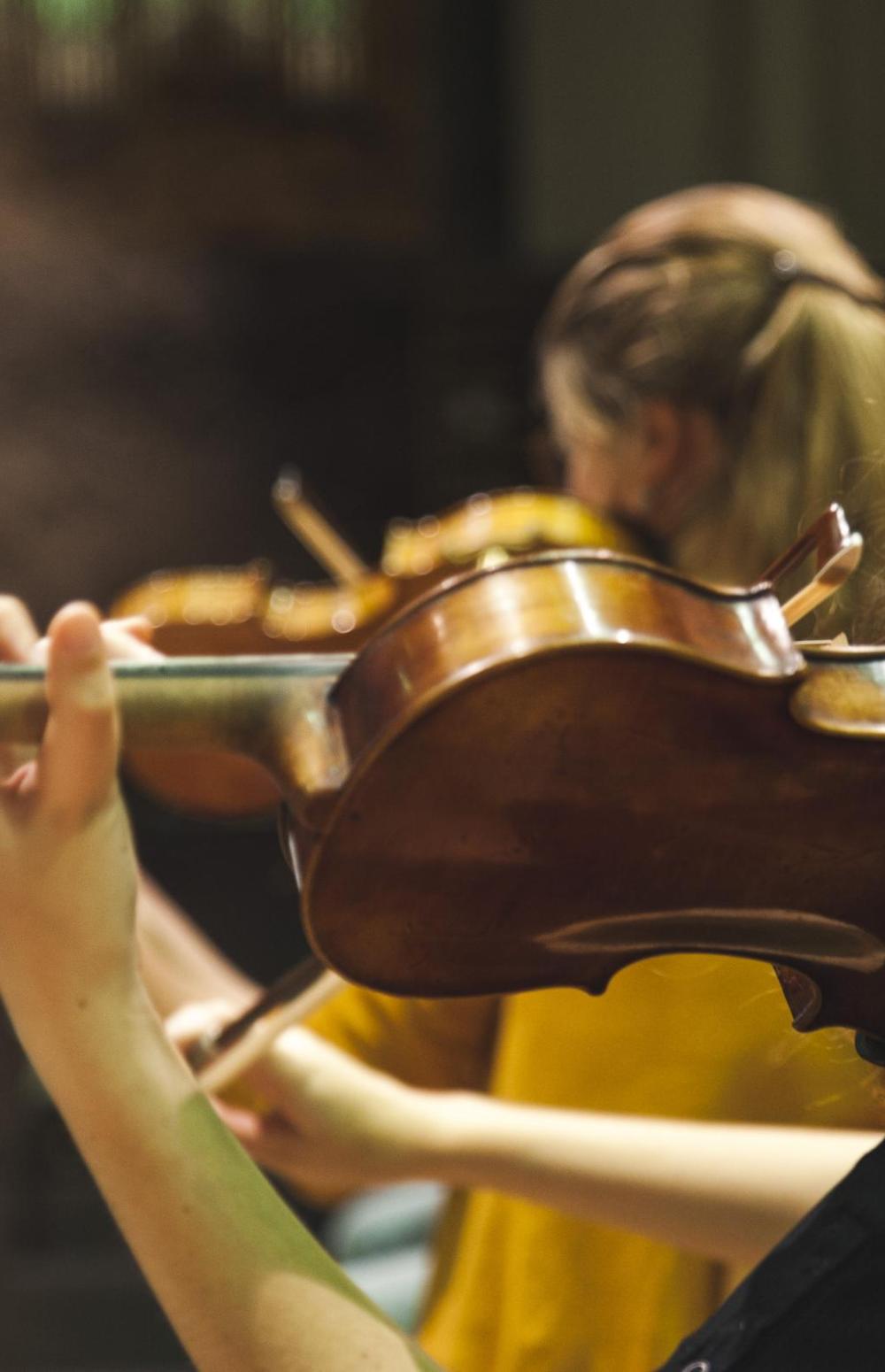
Campus Leuven / Lemmens
Classical Performance
Classical performance
The Classical Performance Programme trains you as a performing musician. The curriculum offered is flexible, allowing you to put together an individual study programme according to your strengths and interests.
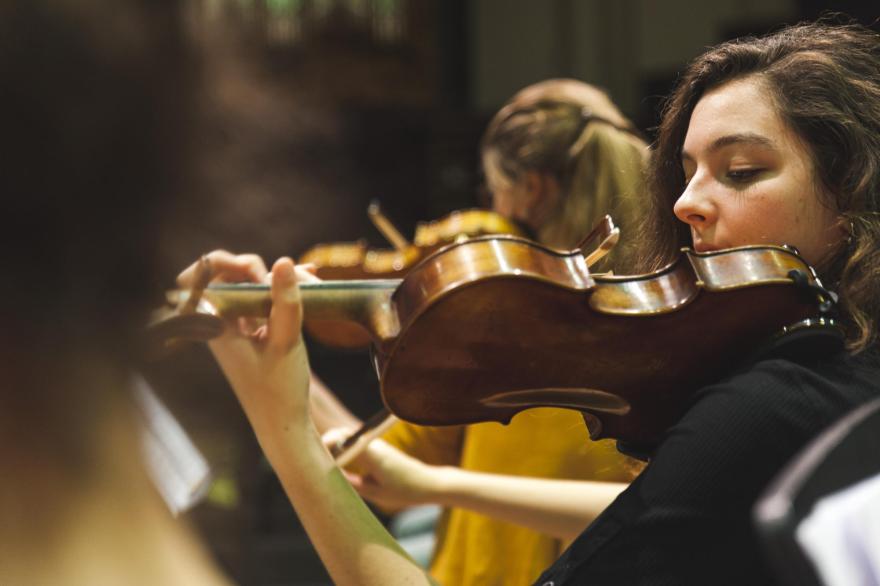
What does the programme look like?
If you are not yet sure of your own profile, our teachers and programme counsellors will help you discover it. Once you have chosen a specific profile, you can still set your own emphases. After all, from year to year, you compose a large part of your individual study programme.
If you want to know more about which subjects you will be taking, take a look at the education offer with study guide for content and credits for bachelor and master.
From the academic year 2022-2023, LUCA School of Arts, Campus Lemmens will offer a new Master's curriculum in Music.
The master's thesis
The master's thesis consists of two self-selected artistic projects: a recital and a research-based recital. You present both recitals to a jury of internal and external experts during a public presentation. You substantiate and contextualise it with a thesis that situates your work within or against existing literature and debates. With this, you prove that you can orient yourself within the field of your artistic discipline. With your master's thesis, you prove that you work largely independently. From your first master's year onwards, you work on your research project with support from your main subject teacher and thesis supervisor.
Inspiration for your master's thesis
|
Masterclasses, symposiums and intense practical experiences Every year, LUCA Music organises interesting master classes and workshops with external experts and renowned national and international musicians. Music practice takes centre stage on our campus. You not only make music during your practical lessons or self-study, but also participate in our ensembles, choirs and orchestras and our prestigious artistic productions. These experiences shape you into a team player. |
Cross-overs LUCA School of Arts is a habitat in which collaboration between students of different arts disciplines is encouraged. This creates interesting crossovers and innovative artistic practices. Students can also take optional subjects from all LUCA programmes, ranging from film or photography to graphic design or interior design to product design or sculpture. |
General Part
All students within the Classical Performance Programme take subjects such as main instrument, chamber music and ensemble.
New from 2022-2023 is the Professional Toolkit. In this 6-credit course, students are strongly oriented to the future professional practice of a musician. You gain insight into the organisational, financial and social aspects of professional practice. You acquire additional skills that you can apply in future practice. Within this subject, students choose a combination of compulsory and freely selectable components such as Entrepreneurship, Performance psychology, Scenic awareness or an internship at the production office, etc.
Electives
Students can deepen their knowledge within their own specialisation/degree course or broaden their knowledge by taking electives within and other degree courses. Elective courses such as (Practical) Harmony, Introduction to Arts Education are complemented by 7 semester-organised workshops - of 6 credits from which the student can choose. A number of minors (fixed package) are also offered within that elective.
Minors
For students with an interest in one of the other programmes, a series of minors of 12 credits each is now also offered within the Music Master's elective. For example, a piano student can study composition or a composition student can study conducting, etc.
- Minor Conducting
- Minor Composition
- Minor Jazz
International Traineeship
In the new curriculum, it is also possible to redeem short international experiences in 3, 6, 9 or 12 credits.
Ateliers
Within the Music majors, students can use (at least) 12 credits per master year within the electives. They choose 1 or 2 of the following 7 new ateliers (of 6 credits).
- Atelier Orchestral Instruments
- Atelier Folk Music
- Atelier Keyboard
- Atelier Early Music
- Atelier New Music
- Atelier Scenic Awareness for Singers
- Atelier Jazz Composition & Arrangement
Cross-Campus Electives
Students will have the opportunity to take (elective) courses from another programme at one of LUCA School of Arts' campuses.
"I came for my main subject teacher, but stayed with LUCA for everything else."
In summary
- A 2-year programme of 120 ECTS
- A solo recital and a thesis written about one aspect of one of the compositions performed during the recital.
- A plenty of opportunities to practice in chamber music groups or within an ensemble of your instrument.

Interested in this course?
Enrollment procedure
The application and enrollment procedure at LUCA School of Arts consists in general of three steps.
- First you will have to submit an online Admissions application in which you will be asked to upload certain documents required for the Admissions’ diploma and language check. We will be checking if you meet with the diploma and language requirements.
- The second step continues with your participation in a Master Assessment.
- Step three is the final and binding (online) registration (for which you will receive a unique registration link after succeeding the Master Assessment).
Do you want to start a Master's degree at LUCA?
Then you must pass the MASTER ASSESSMENT
Where do you have class?
Facilities & campus life
- Our very own campus, situated in a parc in one of Europe's oldest university towns
- An artistic meeting space for theater maker and musicians
- A coworking space with rehearsal studio's concert halls and theater venues
- An art centre with concerts, performances and theater shows, lectures and artist talks, book launches, graduation shows and showcases
- An expertise centre for young perfomnce artists with an art library, production support and a lending service
- An intricate network of cultural partners where students rehears and show the results of their projects
Location
Lemmensberg 3
3000 Leuven
info.lemmens@luca-arts.be
+32 2 447 15 00
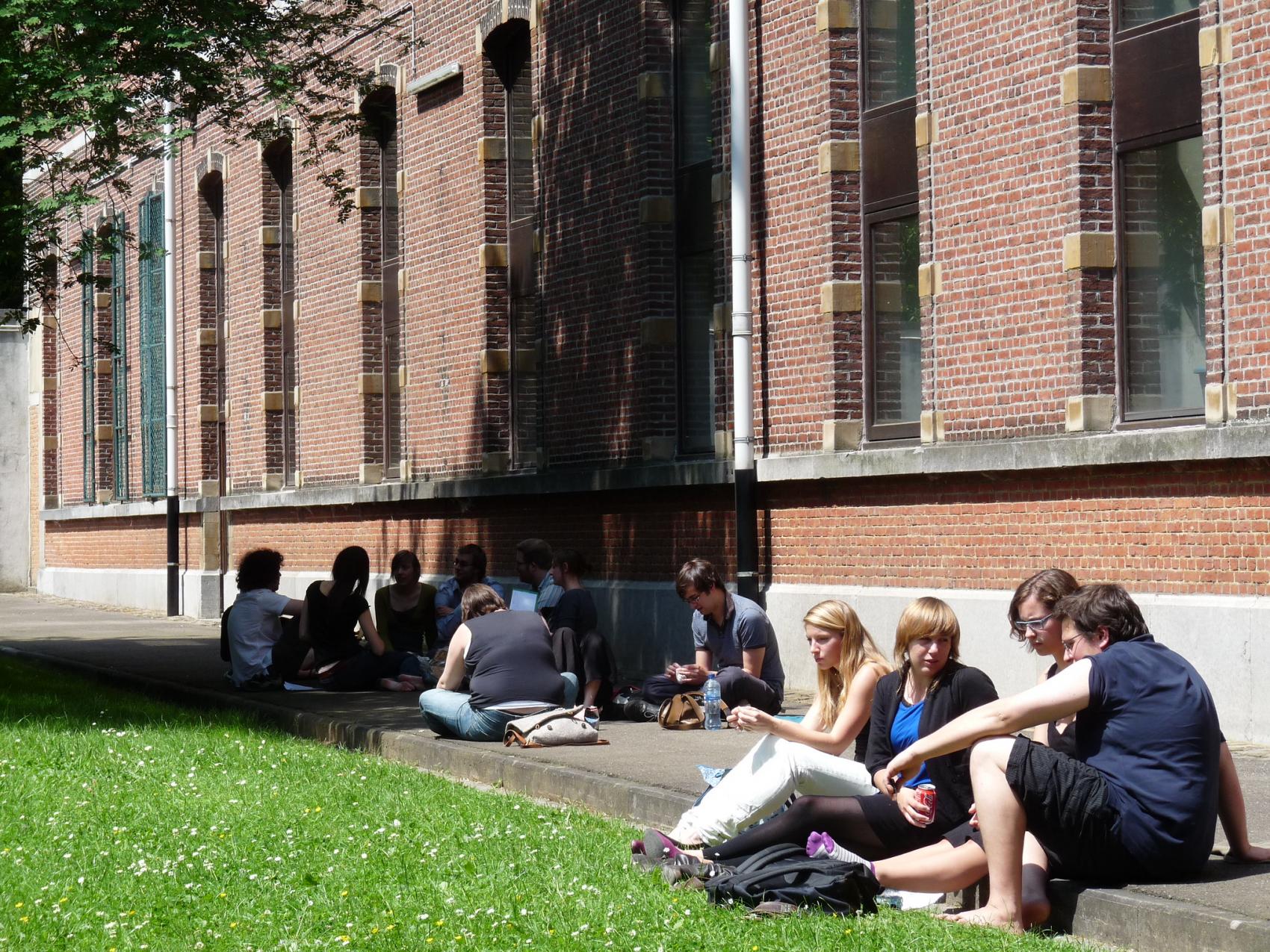
Contact
- Our very own campus, situated in a parc in one of Europe's oldest university towns
- An artistic meeting space for theater maker and musicians
- A coworking space with rehearsal studio's concert halls and theater venues
- An art centre with concerts, performances and theater shows, lectures and artist talks, book launches, graduation shows and showcases
- An expertise centre for young perfomnce artists with an art library, production support and a lending service
- An intricate network of cultural partners where students rehears and show the results of their projects
Location
Lemmensberg 3
3000 Leuven
info.lemmens@luca-arts.be
+32 2 447 15 00

At LUCA we attach great importance to the quality of our courses
If the basic principle of the policy plan means that 'quality is our driving force', and that every aspect of the policy can be tested against this, then LUCA undeniably wants to develop and nurture a strong quality culture: a culture that leaves based on trust in people with talent and expertise, and which is aimed at valuing, inspiring and improving.
The formal quality framework for training within LUCA was named KOPERA, which stands for: Critically Analyzing the Quality of Training with Peers in Own Direction.
For KOPERA, LUCA starts from a vision of quality care that is based on trust and aimed at valuing, inspiring and improving.
During the six-year KOPERA cycle, each training course receives a panel of critical friends who examine the implementation of the quality characteristics and examine how the training contributes to the general LUCA policy.
The final element of KOPERA is the ultimate assurance of training quality. The key question is: "Does the program have a good quality culture that follows the 'plan-do-check-act' circle?"
LUCA publishes a quality sheet for each course. You can find this on the Education Quality page.
On campus Lemmens, I have been able and allowed to develop myself very broadly. All aspects of being a musician were nurtured and challenged. I have also grown enormously on a personal level, with trial and error. The strong and fast reading basis that I got there, has also given me many advantages later on as a performing artist.
As a Master in Music your options are diverse. As an entrepreneur-artist you can create solo and chamber music projects, find your way to theatre and production houses or you can look forward to a brilliant future as an arranger, composer, programmer or conductor. As a performing musician, you are ready to participate in auditions from renowned orchestras and ensembles.
As an educational artist, you have teaching qualifications in Part-time Art Education (DKO), other forms of education, non-formal art education and social-artistic work. If this is your chosen path you should definitively check our shortened Educational Master.
I entered the Lemmens with a clear goal: to become a trombone player in an orchestra. And I have effectively been given all the things that should have enabled me to do this. But it has gone in a different direction in the music industry. What I especially remember and still use today is the network around the Lemmens. There was and is an openness to look beyond walls. It might be a quip, but what I learned in the cafeteria and at the student club are at least as important (and fun) as the love for and knowledge of music that the staff gave me.
Visit us on campus
Are you curious about our approach to Music & Drama education? During our Trial Days, you will get all the information you need, visit the campus participate in classes, ...
Still not convinced visit us during the open campus day. During this on-campus micro festival you can experience first hand how good our students really are.
Your personality and your ambitions are the starting point in our music training. Your teachers are not teachers who impose working methods, but coaches who help you devise your own solutions and tell your own story. For them, there is no better challenge than to support and inspire you. As a master student you will take the lead and they will support you.
Main Instrument teachers
| Art in Context | David Lodewyckx | Bart Geerts |
| Maxime Waladi | Barbara Vandendriessche | |
| Art Philosophy | Annelies Monseré | |
| Chamber Music | Ludwig Albert | Roeland Hendrikx |
| Christel Kessels | ||
| Griet Cornelis | João Carlos Victor | |
| Geert De Bièvre | Benny Wiame | |
| Choir | Kurt Bikkembergs | |
| Ear Training | Jos De Rijck | Bart Van Caenegem |
| Early Music (Atelier) | Alamire Foundation | |
| Folk Music (Atelier) | Pieterjan Van Kerckhoven | |
| Harmony | Geert Van der Straeten | Kris Wittevrongel |
| Lut Verbeke | ||
| Music Analysis | Jeroen D'hoe | |
| Music History | David Lodewyckx | |
| New Music (Atelier) | Geert De Bièvre | |
| Opera | Thomas Blondelle | |
| Orchestra | Ivan Meylemans | Michel Tilkin |
| Orchestral Instruments (Atelier) | Michel Tilkin | |
| Piano accompanist | Rita Degraeuwe | Filip Martens |
| Peter Jeurissen |
Dorenda Notermans |
|
| Roeland Vermeulen | ||
| Practical Harmony | Marc Deckers | |
| Professional Toolkit | Peter Anthonissen | Jeroen Vanbever |
| Research in Performing Arts | Jeroen D'hoe | |
| Rhythm | Tom Pipeleers | |
| Transposition | Jeroen Vanbever |


